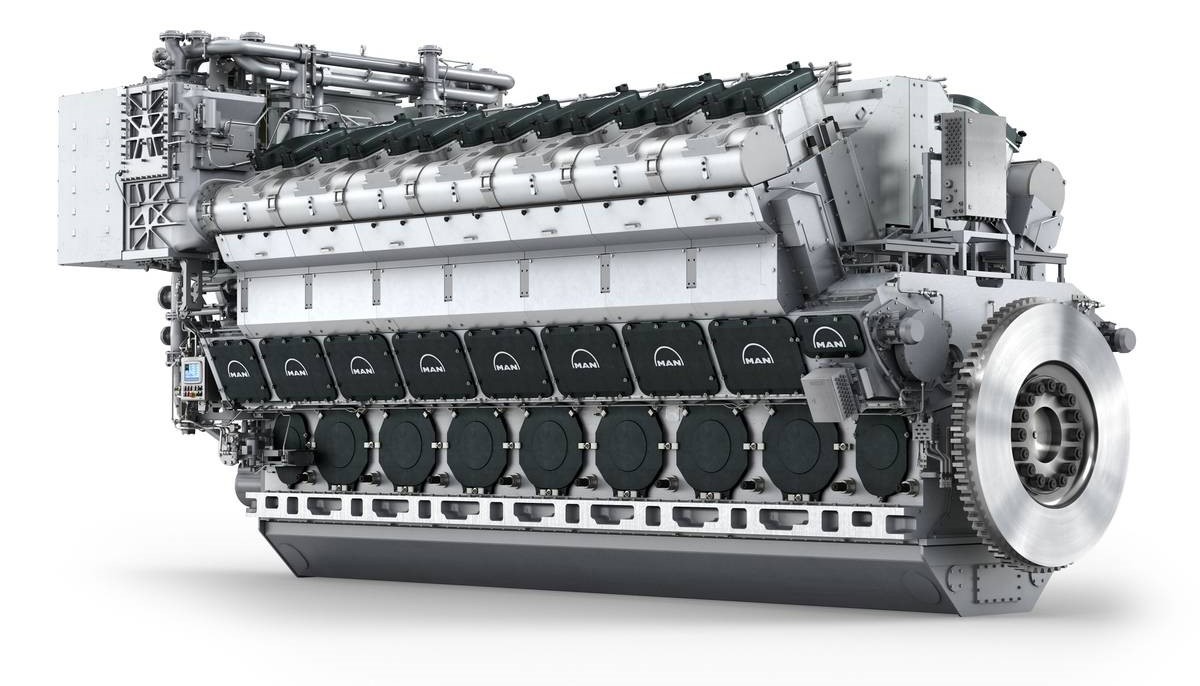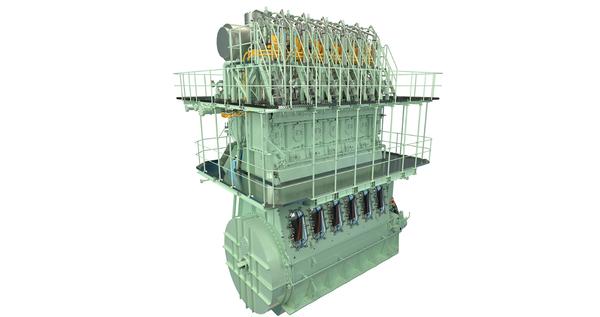MAN ES to offer methanol retrofits for marine engines from 2025
German engine maker MAN Energy Solutions (MAN ES) will offer a methanol retrofit kit for its four-stroke marine engines starting next year.
 PHOTO: MAN Energy Solutions' conventional fuel engine that can be converted to methanol dual-fuel from 2025. MAN ES
PHOTO: MAN Energy Solutions' conventional fuel engine that can be converted to methanol dual-fuel from 2025. MAN ES
According to MAN ES, this retrofit kit will enable its existing four-stroke marine engines to run on methanol as well as conventional fuels.
The company plans to convert the first four-stroke engine for a customer in 2025, with the kit becoming commercially available afterward.
“Climate-neutral shipping can only be achieved with synthetic fuels, and green methanol is particularly suitable for four-stroke applications due to its favorable energy density. In this context, we have already received numerous retrofit inquiries from customers interested in switching to methanol,” said Stefan Eefting, head of MAN PrimeServ Germany.
Methanol’s volumetric energy density is around 2.5 times lower than that of conventional marine fuels such as VLSFO or MGO, and 1.3 times lower than that of liquefied natural gas (LNG), according to DNV.
This also means that methanol-fuelled ships need to consume 2.5 times more fuel to cover the same distance as VLSFO-and MGO-fuelled ships, and that methanol fuel storage tanks onboard ships need to be 2.5 times bigger than VLSFO and MGO storage tanks. The same logic applies for LNG with a 1.3 multiplier.
Since four-stroke engines are often used on smaller vessels like cruise ships, ferries, and offshore support vessels, the increased fuel storage requirement for methanol might be more manageable compared to larger cargo ships, where space constraints are more critical.
MAN ES will market its methanol retrofit technology under its after-sales arm MAN PrimeServ.
“Converting existing engines to dual-fuel operation with synthetic fuels is crucial for achieving climate-neutral shipping,” said Bernd Siebert, head of retrofits & upgrades at MAN PrimeServ.
Siebert concluded that, since ships have a lifespan of 20 to 30 years, retrofitting existing engines to run on low- and zero-emission marine fuels is a more economically viable option than installing new engines or building new ships.
By Konica Bhatt
Please get in touch with comments or additional info to news@engine.online






